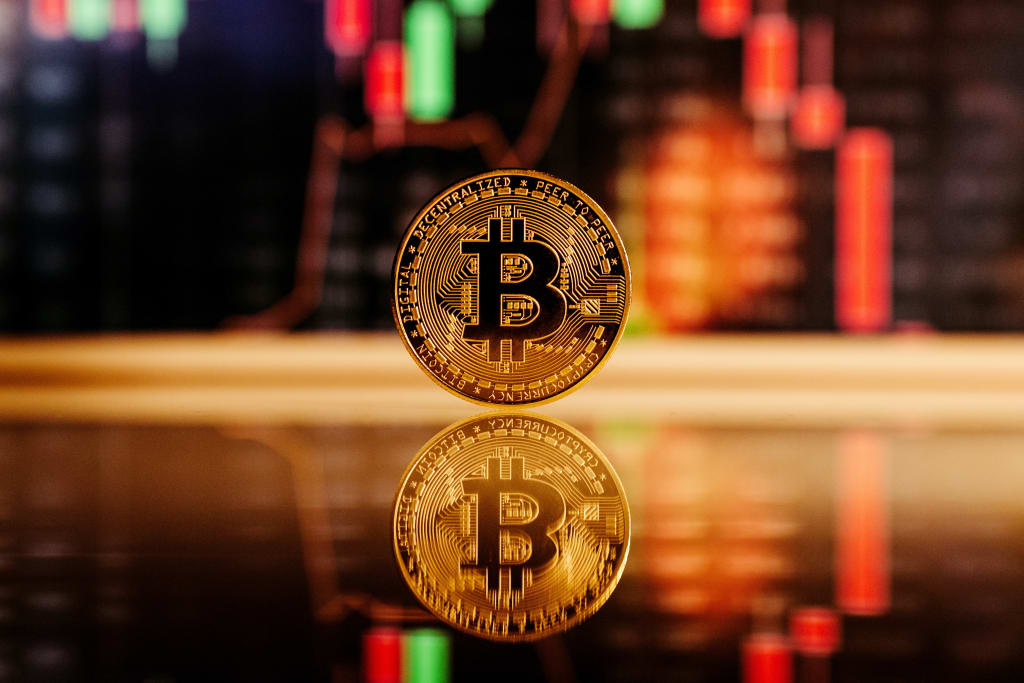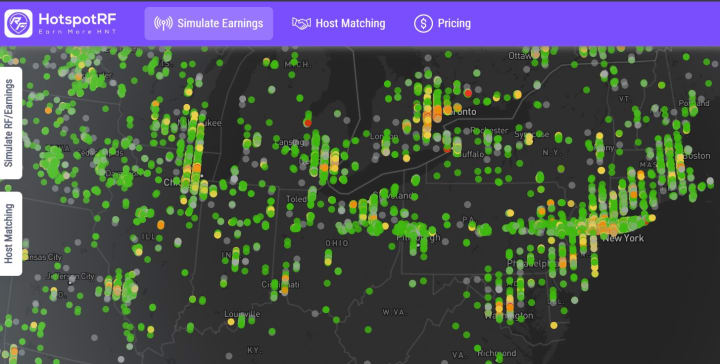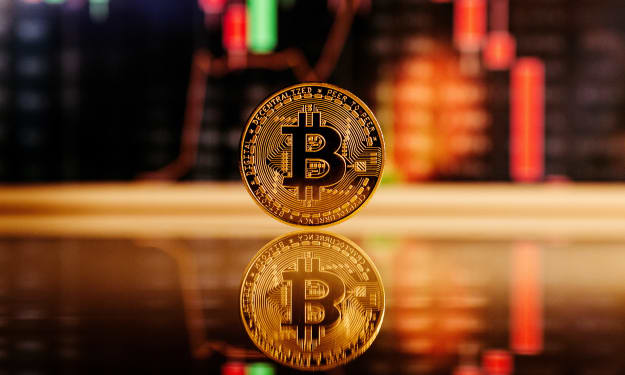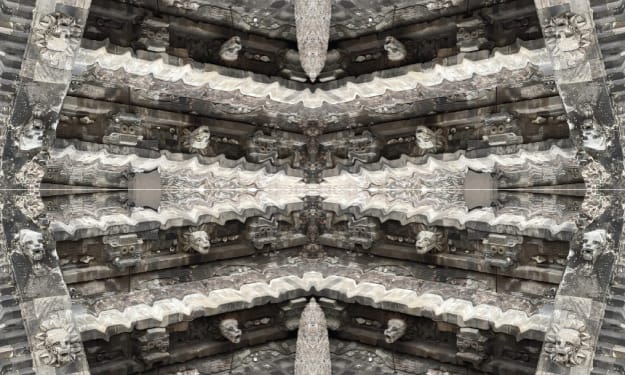Stock Trading - Entry 19
How external forces could impact a useful blockchain AND a new idea

This article covers the last two of my 13 questions I listed in this earlier entry regarding my analysis of the Helium blockchain. Why only two questions here? Well, there were seven questions on tech because I have been advised by many to understand what I invest in. There were four loaded questions regarding key players because I am considering being one of them as an investor or miner. These last two questions are things I am not looking at doing, but each has the potential to rock a blockchain's boat if I ever got in it.
Questions 12 & 13: Explicit Regulators & Social Engineering
Question 12 - Would anything to do with the blockchain be worth regulating for the benefit of any party?
For purposes of my analysis, "regulation" boils down to an agent having a direct impact on things any of the profiteers can do to impact on the value of the blockchain or its tokens. Here's how I see the four Helium profiteers making money by restricting the supply of Helium blockchain tokens:
- the builders/creators/owners in many ways
- miners holding on to the tokens they mined
- companies holding on to tokens they will not use
- crypto-investors looking to buy low and sell high
Let's start from the bottom up.

For crypto-investors, the question I ask is: who controls how difficult or easy it is to buy or sell tokens? Regulators could declare the token untradeable. This would remove crypto-investors from the picture since the tokens wouldn't be available to buy or sell by just anyone. It's kind of like buying and selling bar codes that only track things without the things being tracked. This is useless to investors, but useful for inventory trackers. Such tokens never make it onto exchanges and are privately held for internal inventory tracking purposes only.
The Helium blockchain doesn't work that way from what I gather. Tokens enable you to transfer data on their network. That's a service and services have value. Could a regulator regulate those data transfers? With privacy laws, someone could impose some limits, but so long as some kind of data transfer can still happen, the blockchain could still operate. A regulator could say tokens based on data transfers being traded are illegal. Bye-bye crypto-investors and miners would need another incentive. As of the publishing of this article, I haven't heard of anything like that so far in Canada, though.
So it looks like crypto-investors will be able to continue having an impact on the value of Helium tokens. Helium blockchain users with leftover tokens are basically subject to the same, so what about miners?
Miners of Helium tokens need an antenna as part of their setup. The more massive the antenna sticking atop my roof, the greater the area my node can cover. Many cities have by-laws about having massive antennae sticking above one's roof. But, if I left the node by a window with an antenna as little as four inches long, I could mine just fine if there were no other nodes too close by. (HotspotRF is an online tool showing where other Helium nodes are relative to a location on an interactive map.)

The other thing to note (at the time of publishing this article) are laws prohibiting the use of emergency radio frequencies. From what I read in the white paper, the Helium blockchain does not touch emergency frequencies.

But wait! Miners get tokens for their nodes transferring data, but when can they turn around and sell those tokens? If the tokens can be bought and sold on an exchange, miners become crypto-investors, subject to the above.
But blockchain creators/builders can impose degradations on a miner's rewards. The white paper suggests the Helium blockchain creators/builders coded things to allow the owners to take a slice of all mined tokens. But that still leaves miners with tokens they need to sell.
From what I understand, blockchain creators/builders can also code degradation into the blockchain. This means that anyone other than the blockchain's owners (miners, users, and crypto-investors) would lose some tokens if they were held too long. Hoarding could become an issue if everyone other than users have tokens because the network wouldn't be used!
Stashes of Helium tokens could effectively rot such that if they are not sold back to the blockchain owner after, say, six months of being mined, then that one token magically becomes half a token for the current holder and the blockchain owner magically gets half a token. Miners, users, and crypto-investors would lose some ability to cash-out, but the company could keep selling tokens to users (companies with assets to track/monitor).
As of the date of publication of this article, I an unaware of any such regulator existing, let alone imposing that on the Helium blockchain. From what I have read as of the date of publication of this article, the Helium blockchain hasn't been coded with degradation. So, not a concern.
So far, I have assumed that miners act honourably. What if any miners try to hack the Helium network to enable their nodes to process fake data transfers, thereby tricking the blockchain into rewarding them with more tokens? Some savvy math is needed to prevent the transaction verification process from being hacked (notice how I avoided the use of the word 'undermine'). Helium's white paper says the creators/builders took that into account, although the math is beyond me. (Can math replace the need for police???)
This then leads to the question of what other controls the blockchain's creators/builders/owners have over the supply of tokens? So far, I have talked about how creators/builders/owners can:
- impose token degradation
- take a slice of mining rewards
- give themselves a pile of tokens at the beginning (AKA a reserve)
- charge token-based user fees (although they could charge cash)
I can think of three more:
- price setting
- the Initial Coin Offering
- token migration
Price setting is easy; every business can dictate the price of their goods an services by saying something like, "It costs $3; take it or leave it." That would require either keeping the token off of exchanges or through complex economics based on a reserve. As of the publishing of this article, I haven't seen either occur, although the latter seems possible in my opinion since they actually have a reserve.
The Helium blockchain's builders/creators also get to dictate the starting value of Helium tokens when they first appear on an exchange (AKA Helium's Initial Coin Offering.). I actually just like saying that.

Initial Coin Offering. It's basically the same as an initial price offering (IPO) for stocks, which I described in entry 7.
Then there's token migration. To copy (fork) blockchain code is not too difficult. According to this article, forking happens often and allows people to create a new blockchain by modifying an existing one without having to create a whole new one from scratch. That said, I am not sure how imposing a token migration would work although imposing such a migration would, in my opinion, almost certainly enable coders to change a blockchain in any number of ways. Buyer beware if that happens!
As of the publishing of this article, I am unaware of any regulators that could impose a token migration or what suitable justification they could have in doing so. According to this article, token migrations may or may not:
- involve an easy-to-use conversion tool for token-holders;
- be time-based (migrate before X date or else); or
- serve as the basis for adding initial value to a new blockchain.
Given the headache I can sense coming with articles like this, I will mark token migrations as a separate rabbit hole for some other time.
Competitors, like some telecom companies, would have to invent the brakes to the wheel that is blockchains before those brakes could be applied. Does anyone know of this happening?
Overall, at the time of publishing this article, there seems to be little regulation influencing the Helium blockchain. Any potential regulation seems to be currently in the hands of the Helium blockchain's owners.
That said, governments have started picking on blockchains, but mostly due to economic irritants, including, according to this article, large-scale puzzle-processing mining operations putting a strain on electricity grids from using too much. This has resulted in some governments banning blockchain mining! The Helium blockchain does not strike me as falling into this category.
Question 13 - Imagine the blockchain was a feat of social engineering (AKA grand scale manipulation). What would that hidden objective be?
You have to admit, encouraging people to install a Helium node with the promise of always being able to mine that blockchain and always being able to sell its tokens sounds like a long-term profitable move. That will get people all over the place to install one, resulting in new computer infrastructure, specifically a network sprawled out over a wide area - perfect for asset tracking/monitoring. Are they only watching assets? Most likely because those computers aren't that powerful and I don't have a chip in my body that sends out a signal, do you?
That said, this network could be a feat of social engineering to test incentives for creating and maintaining a wide area network separate from the Internet as well as to see how transmissions work. The things a person can do with sending signals over a very wide area network independent of the Internet are numerous.
One thing I am fairly certain about is the Helium network could not replace the Internet because the nodes are very basic. I mean, if humans revolt, I wouldn't count on an A.I. taking shelter in these nodes given nodes have such limited processing power and hard drive space. But you never know.
My Verdict
Overall, while the Helium blockchain's use case is sound, what nefarious thing could this blockchain be a prelude for? My creative mind can really go places with this thanks to literary titans like George Orwell and Aldus Huxley, but the fact is, the ad hoc creation of a wide area network of computers to track/monitor assets at a fraction of the cost is pretty cool - and needed by various sectors of the economy for legit reasons. For the short- and medium-term, I am not concerned, but beyond that my curiosity is very high.
I am not going to become a minor of the Helium blockchain because it strikes me as having a greedy beginning and a shaky end. It could have been solid the whole way through, but then how else could miners have been initially incentivized to create a wide area network before market uptake? After thinking about this blockchain so much, I have an answer to that question, one that can benefit most societies in addition to allow for profit.
To find out my idea for a blockchain with social benefits plus profits, subscribe for free below to become notified right when that article is published. Otherwise, you will have to keep an eye out here to read that and other entries in my stock trading journey.
About the Creator
Richard Soulliere
Bursting with ideas, honing them to peek your interest.
Enjoyes blending non-fiction into whatever I am writing.
Enjoyed the story? Support the Creator.
Subscribe for free to receive all their stories in your feed. You could also pledge your support or give them a one-off tip, letting them know you appreciate their work.






Comments
There are no comments for this story
Be the first to respond and start the conversation.